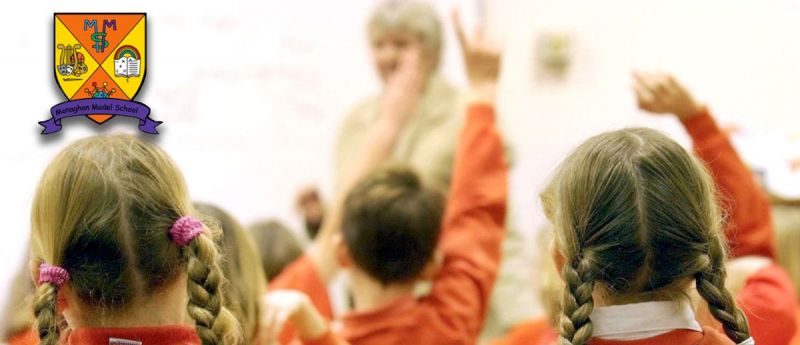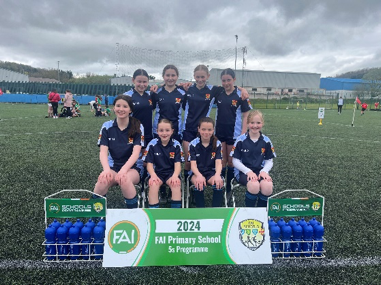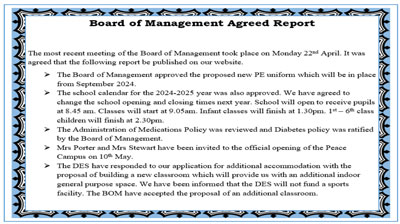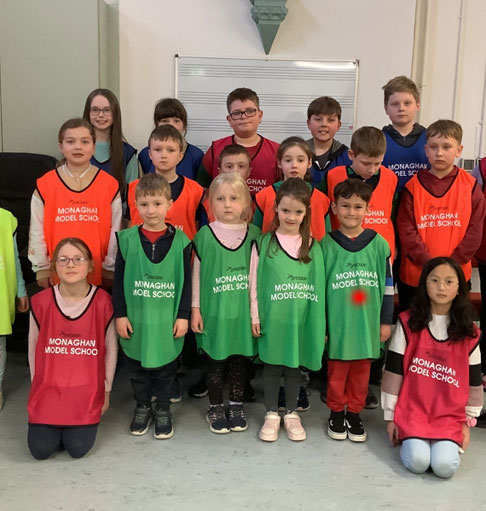Through the implementation of the S.P.H.E. Programme, we aspire to enable children to acquire a sense of identity, self-esteem, mutual respect, responsibility for actions and moral values and to give them the language, factual information and skills necessary for this within a Christian framework.’
School Category: Model school is situated in urban area catering for children from a very wide catchment area and a variety of religious & non- religious backgrounds though is Christian in its ethos.
Scope: This document describes the aims and broad objectives of our school for the inclusion of RSE in the curriculum. These aims and objectives are in keeping with, and an extension of, the ethos of the school, our SPHE programme and RSE mission statement quoted below.
RSE Mission Statement: ‘Through the implementation of the S.P.H.E. Programme, we aspire to enable children to acquire a sense of identity, self-esteem, mutual respect, responsibility for actions and moral values and to give them the language, factual information and skills necessary for this within a Christian framework.’
School Philosophy
- To provide a safe, caring, happy and disciplined environment where children’s self-esteem, initiative and creativity can be nurtured within an atmosphere of mutual respect, tolerance and appreciation. Teachers in partnership with the parents and the Board of Management, are committed to providing education of the highest quality for all.
- Pupils are encouraged to reach their full educational potential by developing intellectual skills combined with a spirit of inquiry and the capacity to analyse issues critically and constructively while developing expressive, creative and artistic abilities.
- We aim to cultivate children’s individual talents and interests and to encourage them to build on their strengths while actively addressing areas of special need.
- We aspire to foster an understanding and cultural appreciation of the moral, spiritual, religious, social and cultural values which shape our society and to nurture respect for such values.
- We will endeavour to encourage children to care for themselves, their families and friends and their environment while also encouraging a keen awareness of national and European heritage.
What is RSE?
Relationships and Sexuality Education is a process through which children learn to relate to others, and to appreciate the role of sexuality in relationships. This process begins in the home and the right and responsibility of the child’s parents to be the primary educators in this area is acknowledged. This process continues in the school-based RSE programme which complements learning in other areas and helps to prepare for responsibilities and challenges of childhood, adolescence and adult life.
Relationship of RSE to Other Curriculum Areas
RSE is not an isolated subject and will be taught within the context of our existing Social, Personal and Health Education Programme. As many of the topics covered in the lesson plans are already being dealt with in other materials currently in us in the school we propose to do only the two areas dealing with New Life and Growth and Development.
What the school currently provides.
All our pupils have time-tabled Health Education Lessons. We have acquired a large and varied range of resource materials relating to SPHE to which the pupils have been exposed. Some of these include the Relationships and Sexuality Education Programme, North Western Health Board Materials, Jenny Mosley Book, Prim-Ed Health Books, Weaving Well-being, Walk Tall Programme, SALT Programme ...etc.
In addition to the above there are a number of other initiatives and projects provided. These include...
- Occasional Focus Weeks dealing with a variety of topics including- Drug Awareness, Be Active, Art & Craft etc
- The Stay Safe Programme. This aims to help children avoid being a victim or perpetrator of abusive behaviour and to deal with a problem of this nature if one exists. The Stay Safe programme will be taught each year going forward.
- Circle Time. Encourages pupils to be positive in assessing their own strengths and weaknesses and those of others. They are given a forum to express any problems they may have in a non-threatening and structured way and solutions to these may be discussed and conflicts resolved.
Aims of the RSE Programme
- To enhance the personal development, self-esteem and wellbeing of the child.
- To help the child develop healthy friendships and relationships.
- To develop and promote in the child a sense of wonder and appreciation of new life.
- To enable the child to be comfortable with the sexuality of oneself and others while growing and developing.
Broad Objectives
When due account is taken of intrinsic abilities and varying circumstances the relationships and sexuality education curriculum should enable the chid to:
- Develop an awareness of differing family patterns
- Come to value family life and appreciate the responsibilities of parenthood
- Become aware of the variety of ways in which individuals grow and change and understand that their developing sexuality is an important aspect of self-identity
- Develop personal skills which will help to establish and sustain healthy personal relationships
- Acquire and use an appropriate vocabulary to discuss feelings, growth and development
- Develop a critical understanding of external influences on lifestyles and decision making
Guidelines for the Management and Organisation of RSE
The delivery of the RSE curriculum will be managed in a way that facilitates the rights and sensitivities of the parents, children and teachers as follows:
Parents: Parents are acknowledged as the primary educators of their children in RSE. Parents have a right to inspect any class materials or resources used in the RSE curriculum of the school. Parents will be informed in advance of the sensitive content taught in Senior Classes from the two modules of New Life and Growth and Development. This will give parents an opportunity to view the material and to meet the individual needs of their child in keeping with family morals and values.
Parents of Sixth Class pupils will be given an outline of the RSE content to be taught during the one day 6th Class Programme. Consent will be required for participation in this programme.
Children: Lessons will be delivered in a caring and sensitive manner. No child will be forced to make responses or give opinions about sensitive issues. No child will be isolated, embarrassed, or have attention drawn to them in the course of an RSE presentation.
Teachers: The principal will make arrangements regarding the teaching of the programme in school. A teacher engaged in the programme is not obliged to answer every question that may be posed, or to teach about any issue outside of the planned curriculum. A teacher has the right to withdraw from all or part of the RSE programme, without having to give a reason for so doing and the school will facilitate such withdrawal.
Strategies for answering pupils’ questions
It may not always be appropriate to answer all pupils’ questions in school. If questions are asked relating to conception, abortion, contraception and homosexuality pupils will be encouraged to address these to parents who can deal with them in keeping with family morals and values.
Guidelines for Delivery of Programme
Two modules of New Life and Growth and Development taught as recommended up to third class level.
In combined classes materials used will be for the lower level.
Theme 6 ‘The Wonder of New Life’ from the fourth class programme will be deferred until fifth class and will be taught to both boys and girls.
A talk on menstruation will be given to fifth class girls. (Parental consent will be required for this lesson)
The sixth class programme will be presented by outside facilitators who have expertise in this area. Parents will be informed of the content of the programme. After this parents who wish their child to be part of the lesson will be asked to sign a consent form.
Ongoing Support Development and Review
Following the initial delivery, the programme will be reviewed with regard to the suitability of content, timing and delivery methods. Parents’ comments on the programme will be welcomed by teaching staff and the Board of Management as part of the review process.
The policy statement will operate from year to year, unless a request for a review is received in writing by the Principal or the content of the curriculum undergoes any changes. Any review of the policy statement will be shared with the parents at a policy review meeting, where their contributions will be invited and welcomed. A new policy statement will not take effect until it has been formally adopted by the Board of Management.
Reviewed & Ratified at Board of Management meeting on 25th March 2019






